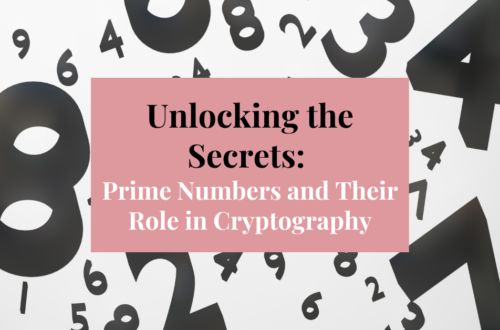Competing in Mathematical Olympiads is no ordinary task—it’s a challenge, a journey, and an opportunity to dive deep into the world of problem-solving. Whether you’re a high school student preparing for your first competition or a seasoned mathlete aiming to level up, the preparation process is key. These contests don’t just test your ability to crunch numbers—they stretch your creativity, logic, and mathematical reasoning beyond the classroom walls.
But don’t be intimidated. With the right mindset, consistent practice, and strategic tools, you can make Mathematical Olympiads a rewarding part of your high school experience. This blog post is your go-to guide, packed with insights, strategies, and resources to help you prepare for success.
Let’s explore how to approach your preparation with purpose and excellence.
Why Compete in a Math Olympiads?
Before we jump into tips and strategies, it’s helpful to understand why participating in these competitions is worth your time:
- Deepens mathematical understanding: Olympiads encourage a deep dive into abstract math topics not always covered in school.
- Enhances critical thinking: The questions often require lateral thinking, pattern recognition, and elegant solutions.
- Improves college readiness: Universities, especially those with strong STEM programs, often view Olympiad participation favorably.
- Connects you to a community: You’ll meet like-minded students who are passionate about mathematics.
- Builds resilience: These competitions teach perseverance, especially when faced with complex problems that don’t have immediate answers.
Tip #1: Understand the Structure of Olympiads
Most Olympiads are not like your typical classroom math test. They focus more on proofs, logical reasoning, and non-standard problem-solving.
Popular competitions include:
- AMC (American Mathematics Competitions)
- AIME (American Invitational Mathematics Examination)
- USAMO (USA Mathematical Olympiad)
- Math Kangaroo
- International Mathematical Olympiad (IMO)
Each competition has its own format, so familiarize yourself with the types of questions, time constraints, and scoring methods. Past papers are often available for free online—use them!
Tip #2: Build a Strong Foundation in Core Topics
While you may be tempted to jump straight into past Olympiad problems, a strong foundation in core areas is essential. Olympiads often emphasize:
- Number theory: divisibility, modular arithmetic, prime numbers
- Combinatorics: counting principles, permutations, inclusion-exclusion
- Geometry: angle chasing, circle theorems, coordinate geometry
- Algebra: polynomials, inequalities, sequences
- Proof writing: understanding how to logically explain your solution step by step
If any of these areas feel unfamiliar, spend some time reviewing them. You can use online platforms like Art of Problem Solving (AoPS), Brilliant.org, or free YouTube channels dedicated to math competitions.
Tip #3: Practice Regularly and Strategically
Consistency beats cramming when it comes to Olympiad preparation. Here’s how to make the most of your practice time:
- Set a schedule: Carve out regular time each week to practice. Even 30 minutes a day can make a huge difference over time.
- Start with easier problems: Begin with introductory-level problems to build confidence.
- Advance gradually: As you progress, tackle harder problems to stretch your thinking.
- Review your mistakes: Reflecting on errors is one of the most valuable parts of learning. Keep a notebook of missed problems and revisit them.
- Time yourself: Once you’re comfortable, simulate test conditions to improve your speed and focus under pressure.
Tip #4: Learn to Write Clear, Logical Solutions
For Olympiads that require proof-based answers, the way you communicate your thinking is just as important as the solution itself. Judges need to follow your logic easily. That means:
- Label diagrams clearly.
- Avoid skipping steps.
- Use proper mathematical notation.
- Explain your reasoning in complete sentences when necessary.
It’s good practice to write out full solutions even for problems you solve mentally. This will sharpen your ability to present your ideas clearly.
Tip #5: Collaborate and Discuss Problems
Don’t go it alone! Some of the best breakthroughs come from discussing problems with peers. Join a math club at school, participate in online forums, or form a small study group. Talking through a problem can help you view it from different angles and uncover techniques you hadn’t considered.
Online communities like the AoPS forums are also great for connecting with students and mentors. Just be careful not to look at the solution too early—struggling with a problem is where the real growth happens.
Tip #6: Take Advantage of Olympiad Resources
Here are some highly recommended resources:
- Books:
- The Art and Craft of Problem Solving by Paul Zeitz
- Problem-Solving Strategies by Arthur Engel
- Mathematical Circles: Russian Experience by Fomin et al.
- Competition Math for Middle School by Jason Batteron (also good for high school beginners)
- Websites:
- Past contests:
- Download and solve past AMC, AIME, and USAMO papers.
- Many international competitions also post archives online.
Tip #7: Focus on Mental Endurance
Olympiads are mentally taxing. Some problems may take 30–60 minutes to solve—or more. Part of your preparation should include building endurance so your mind can stay sharp throughout the competition.
- Work up to solving problems for 2-3 hours at a stretch.
- Limit distractions during your practice sessions.
- Eat well and get enough sleep leading up to your competition.
Tip #8: Maintain a Positive Mindset
It’s easy to get discouraged when a problem stumps you for days—or even weeks. But that’s part of the process. In fact, the very act of struggling through a problem helps you grow as a mathematician.
Remember:
- You don’t have to solve every problem to succeed.
- Mistakes are learning tools, not signs of failure.
- Celebrate small wins—solving even one tough problem is a huge achievement!
And if you’re a Christian like many of the readers of Faith and Formulas, you can also approach your study with a heart that honors God. Colossians 3:23 (CSB) reminds us, “Whatever you do, do it from the heart, as something done for the Lord and not for people.” Your pursuit of excellence in math can be an act of worship and stewardship of the gifts He’s given you.
Tip #9: Don’t Wait Until the Last Minute
Start preparing early. Don’t wait until a month before the competition. Give yourself the time and space to build skills slowly and solidly. The more relaxed and confident you feel, the better you’ll perform.
Tip #10: Enjoy the Journey
Yes, Olympiads are serious. But they’re also fun. There’s beauty in solving a tough problem, satisfaction in making progress, and joy in learning something new. Don’t forget to enjoy the process.
The journey may be challenging, but it’s also exciting and deeply rewarding.
Let’s Talk!
Are you preparing for a math competition? Have you already competed and learned lessons you’d love to share? You’re not alone—and you don’t have to figure it all out by yourself.
Let’s grow together.
Share your experiences, questions, or favorite problem-solving strategies in the comments below. Or join the conversation on Instagram @faithandformulas. I’d love to hear about your journey as you sharpen your skills and stretch your mind.
👉 Question for you: What’s the hardest math problem you’ve ever solved—and what did you learn from it?





